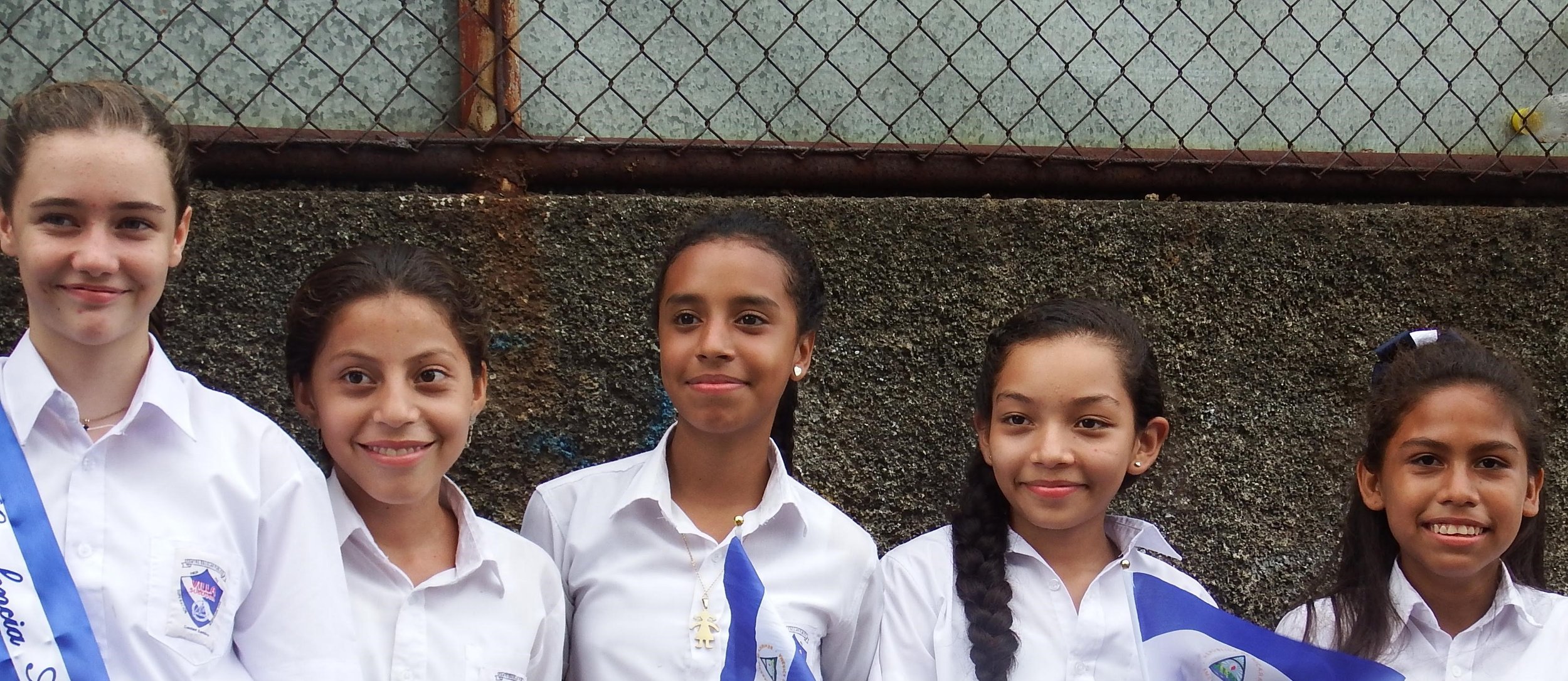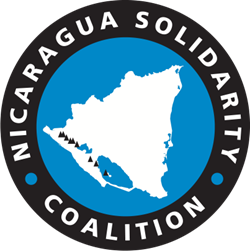
EDUCATION
Education in Nicaragua is 100% free from preschool through university.
1990-2006 Education had been effectively privatized
During the neoliberal governments in Nicaragua from 1990-2006, the public school system in Nicaragua nearly collapsed due to a complete lack of funding. School buildings deteriorated to the point of being useless or even dangerous. Children had to bring their own desks or sit on the floor to receive their lessons. There were no books, so children just copied what the teacher wrote on the board. Families were charged fees which many couldn’t afford – in 2006 it was estimated that there were one million school-aged children not in school. Girls were disproportionately affected: families that couldn’t afford to send all the children to school often sent the eldest boy; the girls stayed home to look after siblings while parents worked.
By 2003, the average Nicaraguan had just three and a half years of schooling, and only 30% of those starting 1st grade were expected to finish 6th grade (United Nations Development Fund 2003). Economists agree that the progress of a country is dependent on education. Earnings increase by 10% with each year of schooling received; a higher increase than any other individual action could provide (World Bank). In 2006, more than half of Nicaragua’s population was under the age of 21, and it was clear that without a significant investment in education, the economy and society was not going to advance.
When the Sandinista government was reelected and took office in January 2007, President Daniel Ortega immediately declared education to be free again in accordance with the Nicaraguan Constitution. The Ministry of Education began to lead fundamental pedagogical changes to create an accessible education system – the results of which have been phenomenal.
Investment in education
Investment in education is more than 4.5 times what it was in 2006. In 2022, 58 cents of every dollar Nicaragua spent was on social programs, with education representing 19% of the country’s overall budget.
Since 2007, school infrastructure budgets have nearly doubled: all 27,000 classrooms in ruins have been remodeled, and 9,303 new classrooms have been built. Today 8,084 schools have complimentary infrastructure such as basketball courts, libraries, teacher’s lounge, principal’s offices, computer labs or kitchens. 1.2 million new school desks have been delivered since 2007 as well as 19.2 million schoolbooks.
Students staying in school
Now, 1.2 million meals per day are provided free to students. Annually, backpacks full of school supplies are provided to 1 million schoolchildren and 60,000 teachers receive a briefcase full of art and school supplies.
School retention rate in 2006 was 69.5%; today it is 92.7%. There are secondary schools in rural areas on Saturdays to encourage students to continue studies: this year 49,060 graduated high school in the rural program. There are programs to help adolescents who have fallen behind to catch up quickly. English language is now offered from 1st through 11th grade. 2,351 schools have tablets or computers, 240,000 students are in a school choir and 1,700 students are in orchestra.
Each high school graduate receives a bonus check for $82 to help cover the costs of graduation and to get started in technical school or university. In 2023, 65,000 graduates received an investment of more than $5.3 million dollars.
Vocational training
Today, there are a multitude of opportunities to receive vocational training – 153 municipal-run technical schools have graduated 361,000 students from free courses lasting 6 months to 1 year.
The National Technical Institute now has 61 centers around the country, and in 2023 trained 520,000 students, 68% of whom are women. There are 77 technical degrees offered in-person as well as 9 degrees available virtually and 40 courses offered as online training.
University education
Public university in Nicaragua is 100% free.
In 2024 there are 180,220 students enrolled in the public university system in 333 different major areas of study. A rural university system has been created in 112 municipalities around the country so that students don’t have to leave their home to study – in 2024 there are 27,110 students enrolled in this program.
19,650 scholarships have been given to help students with the cost of transport, materials and books. Of these, 4,340 scholarships include housing for students to live at the university; they receive lodging and food, medical attention and other services.
#1 for Women
According to the World Economic Forum Gender Gap Report 2023:
Nicaragua is #1 in the world in women’s educational attainment.
Nicaragua is #1 in the world in women’s literacy.
Nicaragua is #1 in the world in women professional and technical workers.
Nicaragua is #1 in the world in women’s enrollment in third-level education.
52% of the enrollment in universities is made up of women in 2024.
(Source: GRUN 2024 unless otherwise noted)
Articles
2024
McCurdy, Nan. “NicaNotes News Briefs.” NicaNotes, 4 January 2024. schools, wages, vaccination, trade with China, religion
2023
“Education for the Good of Humanity: An interview with Salvador Vanegas about Nicaragua’s Education Policies.” Morning Star Online, 30 May, 2023 by Roger McKenzie. Education, Neoliberal, Inclusive Model, Pedagogy, Backpacks
“We’re Not Fighting for Space Anymore.” NicaNotes, 9 March 2023 by Becca Renk. 50-50 Gender Parity Mandate, women’s police stations, Zero Usury lending program, Zero Hunger program, maternity waiting homes, free education
2022
“The Graduates.” NicaNotes, 1 Dec. 2022 by Becca Renk. education, Graduation Bonus, gang activity, safety, teen pregnancy
“Training Young Agroecologists: the Latin American Example.” Nicaragua Solidarity Campaign, 9 Sept. 2022. Paolo Freire, La Via Campesina (LVC), Latin American Coordination of Rural Organisations (CLOC), food sovereignty, Latin American Institute of Agroecology (IALA Ixim Ulew) in Nicaragua
“The Privilege of Public School in Nicaragua.” NicaNotes, 27 January, 2022 by Becca Renk. free education, poverty, literacy, school meal program, backpacks
Videos
Video & webinar resources on Education in Nicaragua

